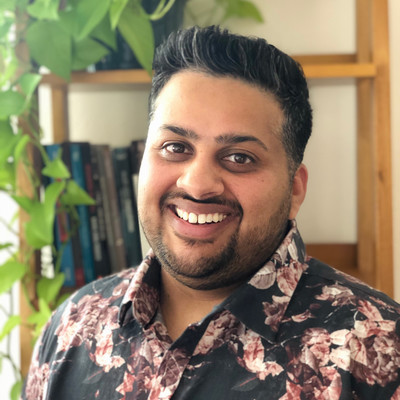Feminist and Gender Studies at Colorado College is proud to share that Associate Professor Rushaan Kumar recently published a new article entitled “Toward a ‘Freedom Life’: Notes on Transmasculine Placemaking in the ‘World-Class’ City of New Delhi.” The article is part of a Special Issue of Men and Masculinities on “Queering Masculinities in the Middle East (SWANA) and South Asia.” Co-edited by Dr. Stanley Thangaraj and Dr. Marcia Inhorn, the Special Issue explores “discourses and practices of masculinity in the Global South” with a particular focus on non-normative masculinities in the Middle East, also known as South West Asia and North Africa (SWANA), and South Asia. Men and Masculinities is an interdisciplinary journal that “publishes critical masculinities scholarship from around the world. With a goal to make cutting-edge research available to readers, instructors, researchers, and policymakers, the journal also acts as a collective of international and interdisciplinary scholars who engage current debates in gender and sexuality studies as a broader field of inquiry.”
Dr. Kumar’s article “grapples with the epistemological elision of transmasculinity across scales and concerns itself with the possibilities of gender nonconforming and transmasculine subject formation and placemaking in the hyperlocal space of the urban neighborhood.” Moving away from a focus on large urban centers, he shifts his attention to queer-transmasculinity in the urban periphery through a close reading of two documentary films Who Can Speak of Men? (2003) and Yeh Freedom Life (2019), made sixteen years apart, both of which are located in low-income and working-class neighborhoods in the Indian city of New Delhi. By reading these two films together through what he calls “a trans microcartography,” Dr. Kumar challenges “narratives of invisibility, absence, and loss within which queer-transmasculine subjects are typically apprehended, and desubjugates the ordinariness of their lives and relationships with/in the city.”
The article also shifts attention away from questions of state recognition and rights-based regimes, foregrounding instead the quotidian as a site of queer and trans flourishing, destabilized gender norms, and non-normative modes of intimacy through experiences of mutual vulnerability. As he puts it: “[D]e-scaling our analytical framework from the nation-state and its domain of law and policy helps locate trans welfare within everyday life in the urban neighborhood. In Yeh Freedom Life, Parveen and Sai’s attachments to their families, lovers, friends, and pets present a different vision for queer and trans survivance that emerges within a localized and horizontal cartography of care and care networks and is sustained beside or without state intervention. Further, daily resistance to gender violence and harassment in Who Can Speak of Men? highlights how queer-transmasculine people might redistribute the conundrum of embodied belonging and thus of gender norms from the victims to the perpetrators of masculinist cissexism. Almost two decades apart, both films depict queer-transmasculine people’s lives and placemaking practices in the context of other class, caste, and communal proximities in the urban periphery, producing a trans microcartography that offers alternative visions of masculinity in the world-class city.”
This in other words is a rich and layered intervention in the fields of masculinity, queer, trans, South Asian, Global South, urban, and film studies that reminds us that the periphery is an abundant site of knowledge-production, and of queer and trans worldbuilding in the Global South.
Congratulations, Dr. Kumar! We are so proud to know you!






